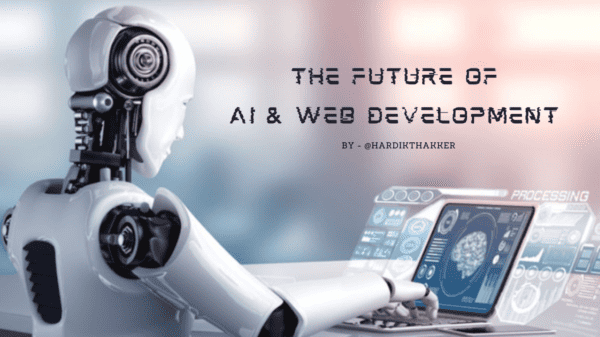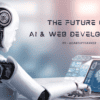Intro
Artificial Intelligence is not just a buzzword and is already embedded deeply in our daily lives, whether we recognize it or not. Since the evolution of deep learning in 2010, AI has become an invaluable tool for e-commerce. New programs can not only analyze customer data but also use this data in customer needs, to make his experience highly personalized. This is a real game changer since e-commerce companies always struggled with that.
With machines being able to complete our mundane tasks, we ourselves can focus more on the things we have previously never had time to accomplish. And with Gartner predicting that 85% of interactions between customers and retailers will happen completely “without interacting with a human” by the year 2020, the topic of AI in e-commerce has never been more relevant. Many e-commerce businesses are already using AI in some ways to generate new leads, better understand their customer and provide an enhanced customer experience. Today we will see how exactly they accomplish that.
Chatbots
You have all probably experienced talking to a robot when calling a big company. And you have all probably ended the call from a frustration since the robot was not very quick and helpful. In the near future though, these AI programs promise to become more advanced, and we, as humans, will be able to chat with bots the same way, we chat with human representatives. Take for example Google’s recently unveiled Duplex, which uses AI voice technology to have natural conversations with other people. Last demos showed formidable results, and possibilities of usage for this program are endless. This is of course just one example, but many e-commerce companies have already implemented chatbots in order to better build relationships with their customers.
Implementation of chatbots gave companies the ability to offer support to their customers on a 24/7 basis. Providing a top-notch experience, these bots grew up from their initial clunky and unrealistic replies into rather efficient intelligent beings. They help customers to find the right product and check its availability, compare different products together and even help you with the payment. Buyers can communicate with the bots via voice, text and even pictures. Excluding the necessity of employing manual labor, chatbots help companies to add a personal touch to a customer’s related experience.
The North Face found the usage of IBM’s AI Watson, in order to help their customers find themselves a perfect coat. The program was asking customers specific questions, like what would be the regular type of activity in the product, or where do they plan to wear it. The program even counted on a weather condition, after which it was giving a suitable match. And Starbucks latest chatbot, called “My Barista” is analyzing the previous order you have made (you can even do that by a chat interface), to later advice you on your next drink. We’re sure to come the long way from the initial Turing test.
Improved recommendation engines
Speaking of “My Barista”, let us not forget, that is a dynamic sector that it is, e-commerce revolutionized the way a consumer shops in our mobile world. The spotlight is one the “hyper-personalization”, which can only be brought to life by examining consumers honest opinions and behavior, collecting data from all of their electronic devices, and finally making predictions with all the data given.
The process of recommendation is widely used by e-commerce organizations to help the customers finding the best solution. Big example here would be Amazon, which identifies the target audience for their product by searching critical record details on the product that was being searched by the customers. Based on the algorithm outcomes, the search engine generates coherent recommendations for the user and lists him all the results on his dashboard. Since then, Amazon sales went up by 29%. Personalized recommendations can be also sent via email, and the system is not as basic here, as you may think. Take Wayblazer – their travel recommendations are based on the person’s current location and needs. Need more examples? Netflix gives you movie recommendations, based on the categories that were on your radar before, and eBay hand-collects customers feedback, to then recommend similar products to customers who would show similar behavior.
Do not think though that the concept of personalization is only limited to the similar products, you have bought before. AI is developing fast, some development companies are strictly focusing on AI development, and is now able to predict consumer’s needs – how his tastes will change when he becomes older, is he likely to change its style and will it become more settled or more spontaneous? And this continues to further evolve, with several combinations and permutations at a place. If companies really want to stay ahead of the competition, they should remember that 48% of customers expect them to predict their buying needs by the year 2020, which means that the ever needed attention to AI in e-commerce will become even more relevant.
Closing thoughts
What if I told you to know, that this article may have been written by a robot.
Nonsense you would say, but a couple years back, Gartner predicted that by the year 2018, 20% of business content would be computer generated. And even though we can now safely say that this prediction did not come to life, some companies try their hardest to incorporate AI into their marketing strategies. Take Washington Post for example, who implemented an AI program called Heliograph, after they decided that they want to cover hundreds of local-based sports events. The heliograph was collecting all the data, like match scores and player statistics, to then write a numerous amount of pages, something that can only a numerous amount of people could have achieved.
Even though some consumers still consider AI being just a cold program, that is completely out of touch with any human connections, it actually helps retailers to become more personal, understanding their needs better, tying the relationship closer. AI already impacts every aspect of the company’s e-commerce experience, from designing a product to customer service – it is not a future, it is happening today. And it only for us to embrace the present.
Thanks for reading this article. If you're new here, why don't you subscribe for regular updates via RSS feed or via email. You can also subscribe by following @techsling on Twitter or becoming our fan on Facebook. Thanks for visiting!


























































































































































































